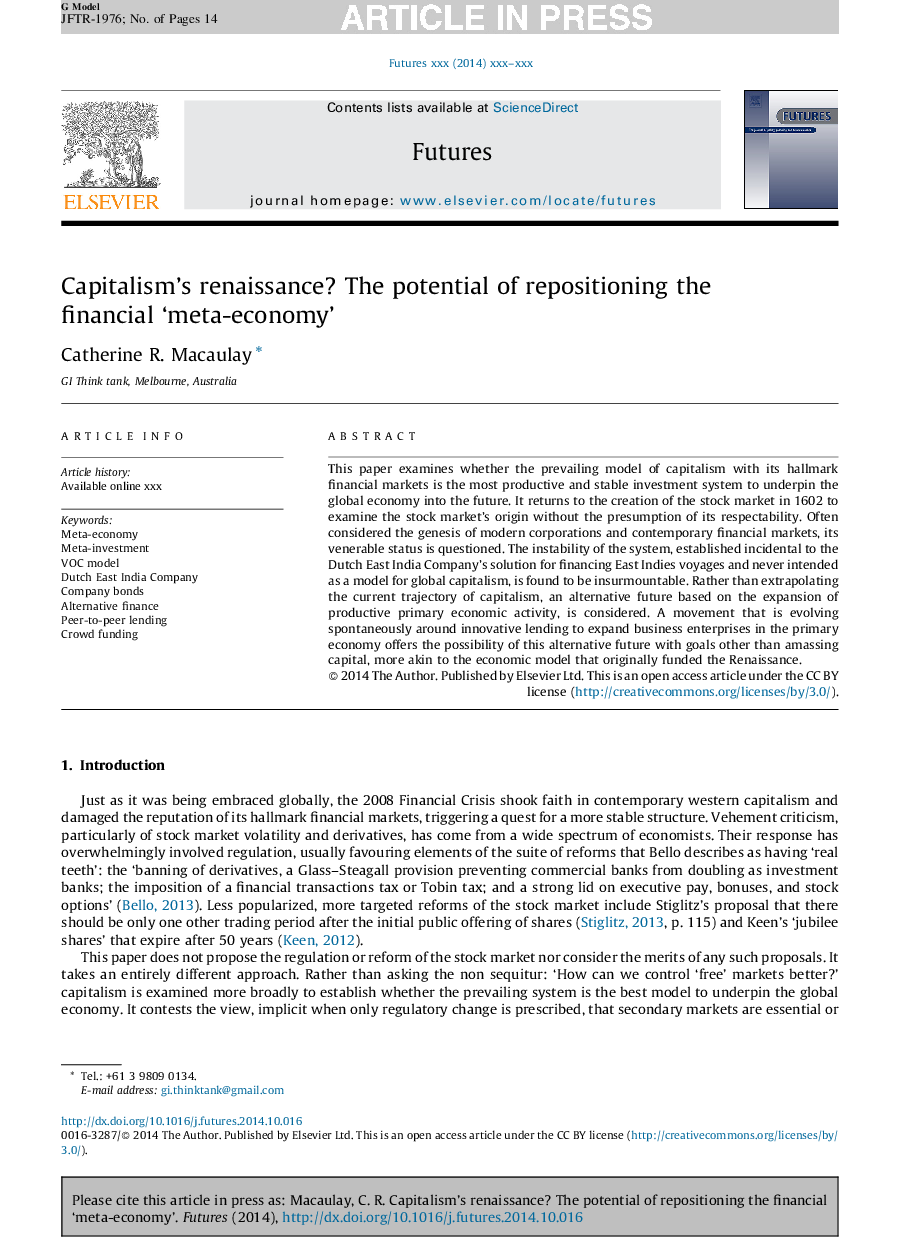| Article ID | Journal | Published Year | Pages | File Type |
|---|---|---|---|---|
| 7424155 | Futures | 2015 | 14 Pages |
Abstract
This paper examines whether the prevailing model of capitalism with its hallmark financial markets is the most productive and stable investment system to underpin the global economy into the future. It returns to the creation of the stock market in 1602 to examine the stock market's origin without the presumption of its respectability. Often considered the genesis of modern corporations and contemporary financial markets, its venerable status is questioned. The instability of the system, established incidental to the Dutch East India Company's solution for financing East Indies voyages and never intended as a model for global capitalism, is found to be insurmountable. Rather than extrapolating the current trajectory of capitalism, an alternative future based on the expansion of productive primary economic activity, is considered. A movement that is evolving spontaneously around innovative lending to expand business enterprises in the primary economy offers the possibility of this alternative future with goals other than amassing capital, more akin to the economic model that originally funded the Renaissance.
Related Topics
Social Sciences and Humanities
Business, Management and Accounting
Business and International Management
Authors
Catherine R. Macaulay,
